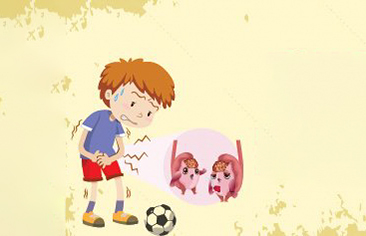Common diseases in children in summer:
Heatstroke: This is a dangerous disease caused by heat. When a child is in the sun for too long, the sun’s rays will shine directly on the neck, causing the body’s temperature-regulating center to be disturbed and dehydration. When suffering from heatstroke, children often have signs of fatigue, dizziness, nausea, headache… The child’s body temperature can be up to 39.5 degrees or higher. Other signs such as hot, red and dry skin (no sweat), rapid pulse… More serious condition is coma, impaired consciousness. Heatstroke can lead to death or severe neurological sequelae if not treated promptly.
Digestive diseases: One of the causes for children to suffer from gastrointestinal diseases such as food poisoning, diarrhea, leading to malnutrition, etc. is due to eating utensils (bowls, cups of water, etc., feeding bottles for babies…) are not cleaned properly or hands and feet are not clean. Some other reasons is improper way of preserving food (both before or after processing), adults leaving food outside to make them go rancid or ferment. The hot, humid season creates a favorable environment for bacteria and flies to cause disease and spread pathogens quickly. At this time, the digestive system is affected, functioning less effectively, so it makes children eat less, and malnourished. Diarrhea and malnutrition form a pathological spiral: diarrhea leads to malnutrition, and when children are malnourished, there is a high risk of diarrhea. Diarrhea which is prolonged, will cause continuous loss of water and electrolytes. Therefore, as soon as you notice that your child has signs of diarrhea and dehydration such as dry lips, dry tongue, dry skin, little urine, fussiness, etc., it is necessary to take the child to the nearest medical facility immediately.
Respiratory diseases: It is hot, sweats a lot. After working out in the sun for a long time, children who often have a habit of going to strong air-conditioned rooms, sitting in front of a cool fan with high speed, will easily cause dry nasopharyngeal area, losing mucus to protect the respiratory tract, creating environment for bacteria to invade. In addition, children with cold water, cool baths are also the cause of heat stroke and severe respiratory diseases such as phlegm cough, whooping cough, severe pneumonia…
Skin diseases: Sun will make sweat glands and mucus more active to reduce heat and eliminate toxins, creating wet areas in the back, forehead, under neck, between fingers, areas under the arms, ankles, groin, … Stagnation, accumulation under the pores of the body combined with bacteria, are the reasons of fungal infections, itching, heat rash, boils, skin infections, fever high…
Infectious diseases: During the change of seasons, there are times when the humidity in the air is high, suitable conditions for viruses to cause diseases such as hand-foot-and-mouth disease. Most of the disease has a mild course such as low fever, diarrhea, small blisters in the mouth or blisters on the palms and soles of the feet. Most of the disease goes away on its own, however, in some cases, the disease can progress to severe, dangerous complications such as meningitis, myocarditis, acute pulmonary edema and can cause to death rapidly. In addition, children are also susceptible to other infectious diseases such as measles, chickenpox, dengue fever, etc., which can leave sequelae if not detected and treated early.
How to prevent illness for children in summer:
- In the hot season, children should be kept indoors in a cool, clean place. Do not allow children play and have physical activities in the sun for too long. If you need to go outside, have your child wear a wide-brimmed hat, light-colored clothing, and light fabrics. If you go to the beach, don’t let them bathe in the hot sun from 10 to 16 o’clock. When a child falls into a state of heatstroke, it is necessary to immediately bring the child to a shady, well-ventilated area and find ways to lower the child’s body temperature such as cool towel, loosening clothes, giving water and electrolyte solutions.
- Pay attention to nutrition for children, give children enough water, ensure “cooked food, drink boiling”; food sources must be fresh and clean; utensils for children must be clean, and food should be properly preserved.
- Do not allow children play or go to crowded places to avoid infection with respiratory diseases, especially during the Covid-19 epidemic season.
- Give children full and timely vaccinations.
- Keep the child’s body and living environment clean. Teach children how to wash their hands with soap properly, before eating, after going to the toilet…
According to Dr.Le Ngoc Duy, Head of Emergency and Poison Control Department in National Children’s Hospital, in general, summer is a very suitable time for children to study, explore, play and be physically active. However, this is also a suitable condition for fungi and harmful super-organisms to develop, which is an environment for hiding, multiplying and spreading pathogens very quickly. Heat illness is not really scary, but if not detected and treated in time, the disease can become serious. Therefore, in addition to implementing food hygiene and safety, keeping a healthy living environment, parents also need to pay close attention to their children. When a child shows abnormal signs, it is necessary to take the child to a medical facility for timely detection and treatment.



